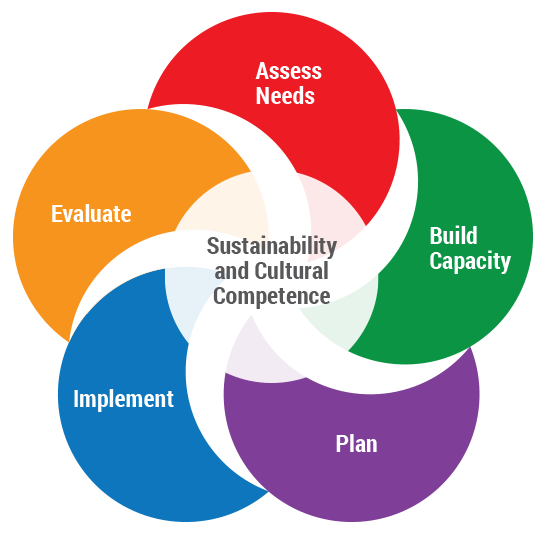About Us


Welcome to GASPS
The technical Assistance system for Georgia’s Alcohol Substance Abuse Prevention Project (PIPP).
We provide
-
Training by Subject Matter Experts (SME)
-
Research-based knowledge and reliable information
-
Guidance through the implementation process
-
Assistance in problem solving and goal attainment
-
Resource and referral information
-
Goal 1
Reduce the early onset of alcohol use among 9-20 year olds
-
Goal 2
Reduce access to alcohol among 9-20 year olds
-
Goal 3
Reduce binge drinking and heavy drinking among 18-25 year olds
-
Goal 4
Reduce binge drinking among 9-20 year olds
Our system services


Technical Assistance for Georgia’s PIPP
Prevention in the State of Georgia
Prevention is a proactive process that enables individuals to create and reinforce conditions that promote healthy behaviors and lifestyles. The Office of Behavioral Health Prevention & Federal Grants (OBHPFG) supports the health and well-being of individuals, families and communities by reducing the use and abuse of substances and their related consequences across the lifespan, and delaying the onset of substance use by youth using a data-driven planning process that targets high priorities for all categories of the population defined by the Institute of Medicine.
The Institute of Medicine’s Continuum of Care (also known as the mental health intervention spectrum) is a classification system that presents the scope of behavioral health services: promotion of health, prevention of illness/disorder, treatment, and maintenance/recovery.

-
Promotion
Involves interventions (e.g., programs, practices, or environmental strategies) that enable people “to increase control over, and to improve, their health.” As such, interventions that promote health occur independently as well as throughout the continuum of care as part of prevention, treatment, and maintenance/recovery.
-
Prevention
Focuses on interventions that occur prior to the onset of a disorder and which are intended to prevent the occurrence of the disorder or reduce risk for the disorder. Prevention is also about striving to optimize well-being.
-
Treatment
Interventions include case identification and standard forms of treatment (e.g., detoxification, outpatient treatment, in-patient treatment, medication-assisted treatment).
-
Maintenance
Includes interventions that focus on compliance with long-term treatment to reduce relapse and recurrence and aftercare, including rehabilitation and recovery support.
-
Recovery
Its a process of change through which individuals improve their health and wellness, live a self-directed life, and strive to reach their full potential.

About SPF


Strategic Prevention Framework (SPF)
in 4 steps
SAMHSA's Strategic Prevention Framework (SPF) is a 5-step planning process to guide the selection, implementation, and evaluation of effective, culturally appropriate, and sustainable prevention activities. The effectiveness of this process begins with a clear understanding of community needs and depends on the involvement of community members in all stages of the planning process.
These steps are guided by the principles of cultural competence and sustainability. The SPF is designed to help States, Jurisdictions, Tribes, and communities build the infrastructure necessary for effective and sustainable prevention. Each step contains key milestones and products that are essential to the validity of the process. Focused on systems development, the SPF reflects a public health, or community-based, approach to delivering effective prevention.

About Environmental Strategies
Environmental strategies are prevention efforts aimed at changing or influencing community standards, institutions, structures or attitudes that shape individuals’ behaviors. While individual approaches focus on helping people develop the knowledge, attitudes, and skills they need to change their behavior, environmental approaches focus on creating an environment that makes it easier for people to act in healthy ways.
